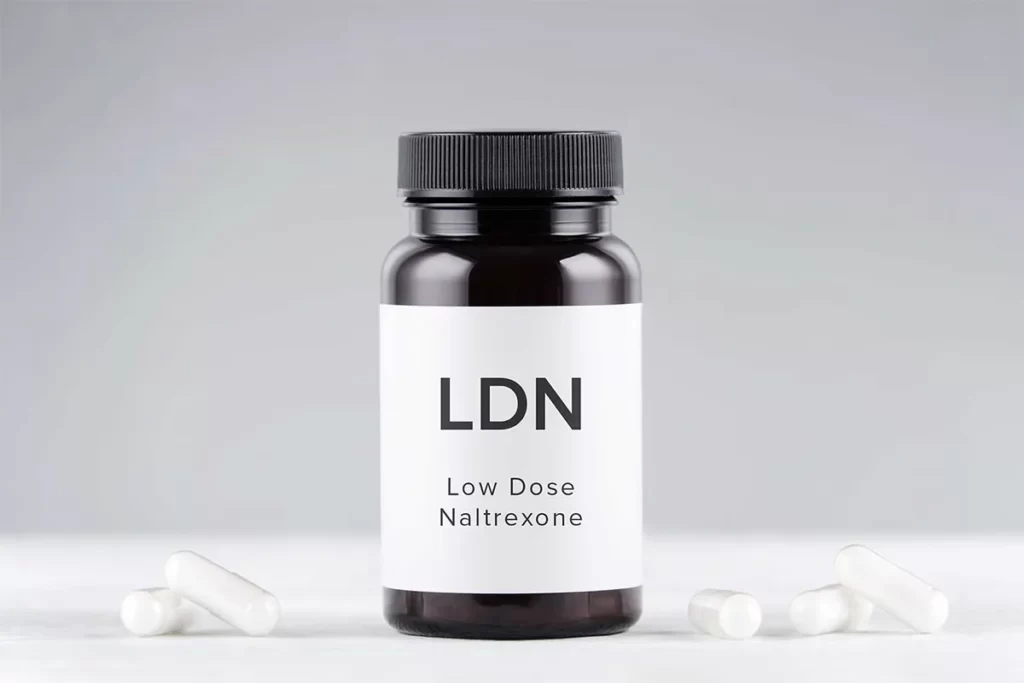Laxatives to Lose Weight: Insights and Precautions
-
 Written by
Michael J. Ormsbee
Written by
Michael J. Ormsbee
- LAST UPDATED September 21, 2023
Laxatives have traditionally been used to relieve constipation, but their use for weight loss is a controversial topic that requires adequate attention. The prevalence of using laxatives to lose weight is increasing, especially among those looking for quick-fix solutions to shed excess weight.
What are the Laxatives?
Laxatives are substances that aid in relieving constipation by stimulating bowel movements or loosening the stool. They play a crucial role in promoting regular bowel movements and maintaining healthy digestive function. Laxatives work in a variety of ways depending on their type, such as drawing water into the intestines, bulking up the stool, or relaxing the bowel muscles to improve transit time. Here’s a deeper understanding of the common types of laxatives available:
Bulking Agents
Bulking agents, also known as fiber supplements, work by adding bulk to the stool, making it easier to pass through the intestines. These agents typically contain soluble or insoluble fibers, such as psyllium, methylcellulose, or calcium polycarbophil. By increasing the stool’s volume, they help to soften it, stimulate bowel contractions, and facilitate easier elimination of waste.
Stool Softeners
Stool softeners, or emollients, feature a mild action and are often considered a gentler alternative to some more aggressive laxatives. They work by increasing the moisture content of the stool, making it softer and easier to pass. Common stool softeners include docusate sodium and docusate calcium.
Lubricants
Lubricant laxatives, such as mineral oil, help to ease stool passage by coating its surface and the lining of the intestines. This slippery coating allows the stool to slide more easily through the intestinal tract, promoting smoother and more comfortable bowel movements.
Stimulants
Stimulant laxatives work by prompting the muscles in the intestines to contract more forcefully, which in turn accelerates stool passage. Some popular stimulant laxatives are bisacodyl and senna. However, it is essential to exercise caution while using stimulant laxatives, as they can cause abdominal cramping and discomfort when taken in excessive amounts or over an extended period.
Osmotics
Osmotic laxatives help regulate bowel movements by drawing water into the intestines, thereby softening the stool and encouraging bowel movements. Examples of osmotic laxatives include magnesium hydroxide (milk of magnesia), polyethylene glycol, and lactulose. Increased water content in the intestines can stimulate the natural contractions of the intestinal muscles, improving stool transit time and easing constipation.

Laxatives to Lose Weight: Clarifying Their Relationship with Weight Loss
The practice of using laxatives to lose weight has been increasingly raising alarms among healthcare professionals, particularly due to the quick-fix mentality often adopted by those desiring to shed excess weight. This trend largely arises from the misconception that laxatives can speed up food transit in the digestive system, thereby limiting calorie absorption and facilitating rapid weight loss. However, deeper analysis suggests that this theory is steeped in misunderstandings and inaccuracies.
Laxatives chiefly serve the purpose of easing bowel movements. They achieve this by increasing the stool’s water or volume content, smoothing the intestinal tract, or stimulating muscle contractions in the gastrointestinal system. The weight-loss theory associated with laxatives presumes that by accelerating digestive waste elimination, the body is given less time to absorb calories from ingested food. This, proponents argue, could potentially lead to a calorie deficit that promotes weight loss.
This theory, however, neglects the fact that the small intestine, not the large intestine where laxatives primarily take effect, is responsible for the majority of calorie absorption. Therefore, by the time laxatives prompt bowel movements, the body has already processed and absorbed the calories from the food consumption. The primary constituents of what laxatives actually dispose of are waste products, undigested fiber, and water. Consequently, the usage of laxatives to lose weight results in temporary water loss as opposed to actual fat loss.
Regardless, some individuals might observe an initial weight decrease after laxative use. However, it is key to understand that this is primarily ‘water weight’ loss that is quickly restored upon body rehydration. This type of weight reduction is temporary and, if not properly managed, can lead to dehydration and electrolyte imbalances.
The Truth Behind Using Laxatives to Lose Weight: Uncovering the Reality
A prevailing myth around laxatives is the belief that they can contribute to weight loss. The reality, however, is much more complex. Laxatives potentially offer a short-term reduction in body weight, but this is mainly due to water loss, not a decrease in body fat.
The working of laxatives predominantly focuses on the large intestine, which plays a minor role in nutrient and calorie absorption. In fact, most of the calorie absorption occurs within the small intestine, long before laxatives can exert their effect. Consequently, contrary to the conventional belief, laxatives do not prevent the body from absorbing calories, rendering the concept of laxative-induced weight loss largely misguided.
Alarmingly, laxatives can instigate several undesirable health effects if misused or overused. One of the most immediate risks is dehydration, as laxatives can trigger significant fluid loss. This could further result in electrolyte imbalances, manifesting as muscle weakness, fatigue, or irregular heartbeat. The consequential reduction in total body water might momentarily impact the scale, but it’s important to recognize that this does not represent true fat loss.
Repetitive bowel stimulation can also lead to a disruption of the normal bowel functionality, causing constipation and other digestive issues. Long-term laxative use can potentially foster a state of dependence because over time, the bowel muscles can lose their capacity to contract independently.
Moreover, chronic laxative abuse can contribute to more grave health problems, including intestinal lining damage, rendering the intestines more permeable and susceptible to infections or inflammation. This can have a severe ripple effect, exacerbating gastrointestinal distress and potentially causing systemic health issues.
The Dangers of Employing Laxatives to Lose Weight: What You Need to Know
The misuse of laxatives for the purpose of weight loss can potentially lead to a series of adverse health repercussions. These health risks vary in scale and severity, spanning from transient discomfort to grave enduring health issues. By overusing laxatives, individuals are at risk of developing laxative abuse, a serious medical condition.
Laxative abuse occurs when the body builds a dependence on laxatives to initiate bowel movements. Essentially, the body’s natural ability to perform its digestive functions is impeded, and a reliance on these external agents ensues, causing a potentially pernicious cycle. This condition frequently overlaps with eating disorders, increasing the seriousness and complexity of the incumbent health issues.
Numerous studies and case reports have emphasized the detrimental implications of laxative abuse. Among the most common symptoms are chronic constipation and bloating. Laxatives, by design, aid in inducing bowel movements, but paradoxically, their abuse can result in persistent constipation. This occurs when the bowel muscles become weakened due to overstimulation, thereby losing their innate ability to contract and move the stool through the digestive tract effectively.
Frequent laxative use could also result in bloating as the overstressed digestive system struggles to process food adequately, leading to an accumulation of gas and water.
More alarmingly, long-term laxative misuse can precipitate harm to the body’s internal organs. For instance, it can lead to gastrointestinal damage, such as erosion to the intestinal lining, which could increase susceptibility to inflammation and infections. It could further impact the kidneys due to excessive loss of fluids and electrolytes, potentially provoking kidney stones or kidney disease if left unchecked.
Exploring Safer Alternatives: Moving Beyond Laxatives to Lose Weight
The lure of rapid results in weight loss can often lead individuals to sideline important considerations of health and longevity. However, there exist numerous tested methods to achieve weight management goals that provide not only safe results but also sustainable ones. These approaches offer a striking contrast to the use of laxatives to lose weight, a short-term solution with harmful repercussions, and provide long-lasting and health-promoting outcomes.
At the heart of any successful weight-management plan is regular physical activity. Participating in varied workouts including strength training, aerobic exercise, or yoga not only aids in burning calories but also promotes cardiovascular health, boosts muscular strength, and uplifts mental well-being. The secret resides in identifying a form of exercise you enjoy, thereby promoting its daily incorporation into your routine.
Pairing consistent exercise with a nutritious, balanced diet forms a crucial aspect of healthy weight loss. Consuming foods rich in essential vitamins, minerals, and fiber offers your body all needed nutrients for optimal functioning. A diet conducive to weight loss should primarily include lean proteins, fruits and vegetables, whole grains, and healthy fats. Paying attention to portion sizes to prevent overeating is another key factor.
Furthermore, sufficient rest and recovery often serve as neglected elements of weight loss. Good-quality sleep and successful stress management play vital roles as they regulate several metabolic functions and hormones involved in weight management. Similarly, chronic sleep deficiency or elevated stress levels can interfere negatively with dietary and exercise choices, posing challenges to weight management.
Healthcare and fitness professionals strongly recommend these comprehensive, health-focused methods over potentially harmful weight loss quick-fixes like using laxatives to lose weight. By integrating regular physical activity, balanced nutrition, and proper rest, you can embark on a weight management journey that extends beyond simply achieving a desired scale number to enhancing overall health and well-being. This integrated approach can lead to more effective, healthier weight reduction, promoting long-term well-being and an improved quality of life.
Conclusion
Using laxatives for weight loss may sound appealing for quick results, but the potential dangers far outweigh the temporary benefits. Opting for healthier weight management strategies, such as a balanced diet and regular exercise, are much more beneficial for long-term weight management and overall health. Remember, health should never be compromised for the sake of quick results.

Frequently Asked Questions on Laxatives to Weight Loss
What is the best laxative to take to lose weight?
It is crucial to understand that professionals do not recommend the use of laxatives as a weight loss method. Laxatives are primarily designed to relieve constipation, not for fat loss. Any perceived weight loss resulting from laxative use is typically due to water loss, which is temporary and potentially harmful.
How can I lose 10 pounds in a month?
Achieving a sustainable weight loss involves implementing balanced nutrition, regular physical activity, and adequate rest. You should aim for gradual weight loss, usually 1-2 pounds per week. Following a nutrient-rich diet, consuming smaller portions, increasing physical activity, and maintaining a healthy sleep schedule can contribute to healthy weight loss. Always consult with a healthcare professional or a licensed dietitian before starting any weight loss plan.
Can I lose weight taking laxatives?
While you may see a temporary change in weight when using laxatives, it is mostly due to water loss, not fat loss. Prolonged usage can lead to dehydration, electrolyte imbalance, and dependency. It's imperative to consult with a healthcare professional for safe and effective weight loss methods.
Does MiraLAX help you lose weight?
MiraLAX is a type of laxative used primarily to treat occasional constipation. It is not intended, nor is it effective, as a weight loss supplement. The use of MiraLAX or any other laxative for weight loss can lead to adverse health effects and is not recommended.
Will laxatives help me lose belly fat?
No, laxatives will not help you lose belly fat. Laxatives work in the large intestine, after most of the calories and fat have already been absorbed by the body. They accelerate the elimination of water and waste from the body, leading to temporary water weight loss, but do not contribute to the loss of body fat. Approaches to lose belly fat should involve a combination of balanced diet, targeted exercises, and overall weight loss under the supervision of a health professional.






